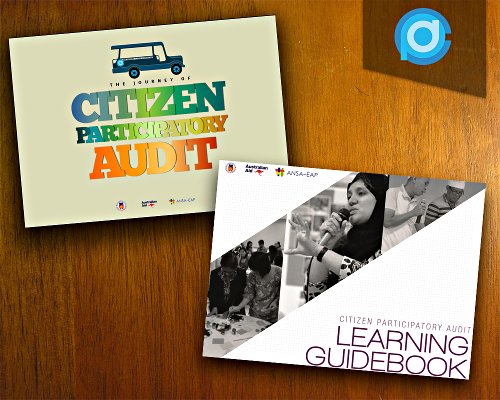By Shigemi Muramatsu
Two more publications of the Citizen Participatory Audit (CPA) Project are now available at the ANSA-EAP and i-Kwenta websites.
The Journey of Citizen Participatory Audit and the Learning Guidebook capture the significant change stories from CPA actors as well as its capacity building process, respectively.
With the key players themselves telling their stories, The Journey of Citizen Participatory Audit comes in three major chapters, each focusing on key accomplishments during the past two years—1) Engaging citizens; 2) the Commission on Audit (COA) opening up; and 3) cultivating partnerships.
The e-book also features the call for sustaining the CPA initiative and the reflections of the team members from ANSA-EAP.
The CPA Learning Guidebook on the other hand is primarily a reference material for learners and practitioners of CPA. It mainly features a road map of the capacity building process and serves as a guide to course developers and writers in crafting modules, sessions, and learning activities.
The guidebook has a total of 10 sessions/topics covering four major modules—1) Setting the CPA context; 2) Performance Audit: An Overview; 3) Planning the Audit Project; and 4) Reflection/Assessment Sessions.
These two publications were products of the recently-concluded pilot phase of the CPA Project. This October 2014, an agreement for a second phase is scheduled to be signed, exploring on strategies towards institutionalizing CPA in COA.
CPA is a joint initiative of the Philippines’ COA and ANSA-EAP to enhance citizen participation in the public audit process. It is supported by the Department of Foreign Affairs and Trade (DFAT), Australian Embassy through its Public Financial Management Program (PFMP) implemented by Coffey International Pty. Ltd.
Download the The Journey of Citizen Participatory Audit and the Learning Guidebook.

